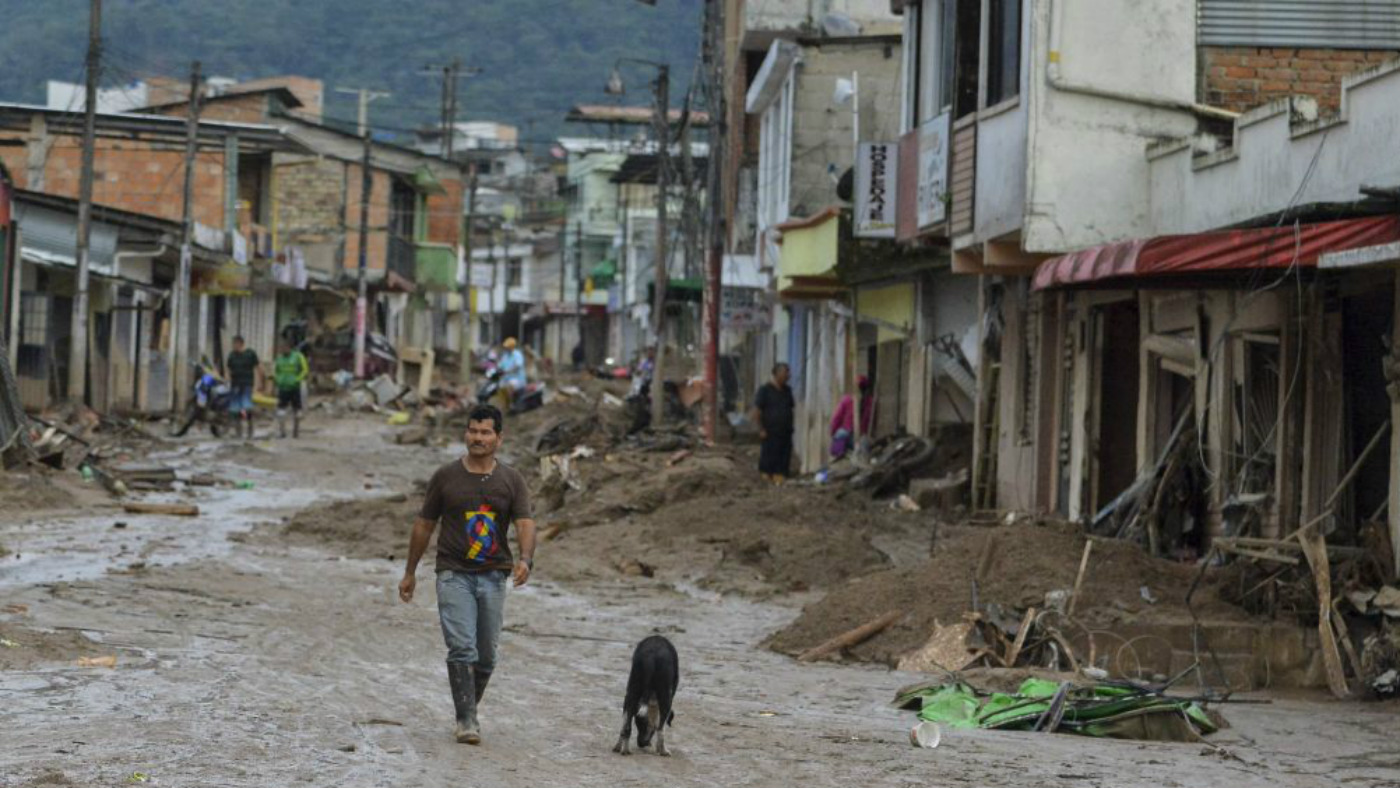Colombia: More than 250 killed in landslide
Dozens of children among the dead after heavy rain floods the south-western city of Mocoa

A free daily email with the biggest news stories of the day – and the best features from TheWeek.com
You are now subscribed
Your newsletter sign-up was successful
At least 254 people, including dozens of children, have died after a severe landslide engulfed a city in south-western Colombia.
Residents in Mocoa woke on Saturday morning to find torrents of water and mud flowing through the streets, burying whole neighbourhoods and downing electricity networks.
"The disaster struck in the early hours of Saturday when the rushing waters of the Mocoa river and its tributaries converged on the capital of Putumayo province, catching many people by surprise as they slept," reports The Guardian.
The Week
Escape your echo chamber. Get the facts behind the news, plus analysis from multiple perspectives.

Sign up for The Week's Free Newsletters
From our morning news briefing to a weekly Good News Newsletter, get the best of The Week delivered directly to your inbox.
From our morning news briefing to a weekly Good News Newsletter, get the best of The Week delivered directly to your inbox.
The area has been declared a disaster zone and search efforts are continuing for the missing.Firefighters and rescuer parties have so far retrieved 82 bodies, Jhon Ever Calderon, the mayor of nearby Villagarzon, told Reuters.
"We think we'll find more," he added.
"Bodies were still being pulled from the thick mud, tree limbs and debris that covered much of the city" on Sunday, as desperate friends and relatives searched for missing loved ones in the sludge, CBS reports.
According to Colombian newspaper El Tiempo, hundreds of people have been forced into emergency shelters and are relying on tankers for drinking water.
A free daily email with the biggest news stories of the day – and the best features from TheWeek.com
The floods "not only took more than 200 lives but plunged this regional capital of around 65,000 people into a great humanitarian crisis".
A candlelit vigil was held in the town on Saturday night, adds the paper, with many of the participants still in the muddy clothes they were wearing when the mudslide struck.
Flooding and mudslides are a fact of life in the rainy, mountainous nation. The deadliest on record occurred in Armero in 1985, when 20,000 people were killed.
However, Colombian President Juan Manuel Santos said he believed climate change contributed to the Mocoa flooding and that the intensity of the avalanche was "without precedent".
-
 How Democrats are turning DOJ lemons into partisan lemonade
How Democrats are turning DOJ lemons into partisan lemonadeTODAY’S BIG QUESTION As the Trump administration continues to try — and fail — at indicting its political enemies, Democratic lawmakers have begun seizing the moment for themselves
-
 ICE’s new targets post-Minnesota retreat
ICE’s new targets post-Minnesota retreatIn the Spotlight Several cities are reportedly on ICE’s list for immigration crackdowns
-
 ‘Those rights don’t exist to protect criminals’
‘Those rights don’t exist to protect criminals’Instant Opinion Opinion, comment and editorials of the day
-
 Epstein files topple law CEO, roil UK government
Epstein files topple law CEO, roil UK governmentSpeed Read Peter Mandelson, Britain’s former ambassador to the US, is caught up in the scandal
-
 Iran and US prepare to meet after skirmishes
Iran and US prepare to meet after skirmishesSpeed Read The incident comes amid heightened tensions in the Middle East
-
 Israel retrieves final hostage’s body from Gaza
Israel retrieves final hostage’s body from GazaSpeed Read The 24-year-old police officer was killed during the initial Hamas attack
-
 China’s Xi targets top general in growing purge
China’s Xi targets top general in growing purgeSpeed Read Zhang Youxia is being investigated over ‘grave violations’ of the law
-
 Panama and Canada are negotiating over a crucial copper mine
Panama and Canada are negotiating over a crucial copper mineIn the Spotlight Panama is set to make a final decision on the mine this summer
-
 Why Greenland’s natural resources are nearly impossible to mine
Why Greenland’s natural resources are nearly impossible to mineThe Explainer The country’s natural landscape makes the task extremely difficult
-
 Iran cuts internet as protests escalate
Iran cuts internet as protests escalateSpeed Reada Government buildings across the country have been set on fire
-
 US nabs ‘shadow’ tanker claimed by Russia
US nabs ‘shadow’ tanker claimed by RussiaSpeed Read The ship was one of two vessels seized by the US military